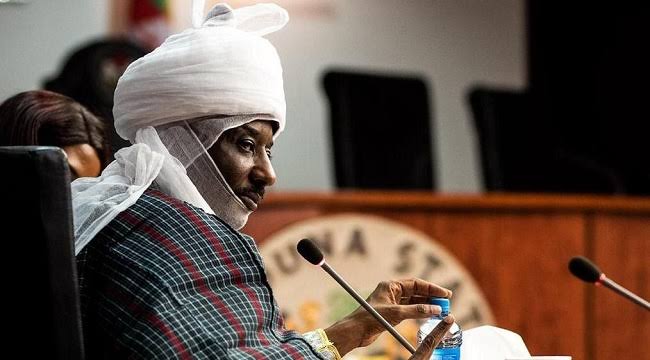Sanusi Lamido Sanusi is reinstated as Emir of Kano, after being dethroned in 2020, symbolizing tradition and reform.
In a historic turn of events, Sanusi Lamido Sanusi has been reinstated as the Emir of Kano, marking his second ascension to the throne of the ancient northern Nigerian city. Sanusi, previously dethroned in 2020, is now officially the 14th and 16th emir of Kano, showcasing his enduring influence and the shifting political landscapes within Nigeria.
Sanusi’s initial removal was steeped in controversy and political maneuvering. Accused of insubordination and political interference by then-Governor Abdullahi Ganduje, Sanusi’s outspoken nature and reformist stance often placed him at odds with the ruling authorities. His critical views on government policies and traditional practices, particularly those affecting the education and rights of women, positioned him as a modernizing force within the conservative framework of Kano’s leadership.
As a traditional leader, Sanusi’s role transcended ceremonial duties. Despite holding few constitutional powers, emirs in Nigeria are revered custodians of religion and tradition, wielding significant influence over their communities. Sanusi’s advocacy for progressive policies, including family planning and the education of girls, was a notable departure from the norm and sparked both admiration and resistance.
Sanusi’s reinstatement by Governor Abba Yusuf, the political protégé of Sanusi’s original appointer, Rabiu Kwankwaso, signals a dramatic shift in Kano’s political landscape. The dissolution of the five newly created emirates and the removal of the first-class emirs underscore the governor’s commitment to restoring traditional structures and acknowledging Sanusi’s enduring legacy.
This reinstatement is not just a personal victory for Sanusi but also a testament to the resilience of traditional institutions in adapting to contemporary challenges. It highlights the intricate interplay between tradition and modernity in Nigeria’s sociopolitical fabric.
Sanusi’s return is expected to invigorate his reformist agenda. His influence, particularly in advocating for social changes within the conservative Muslim north, remains critical. His reinstatement serves as a beacon for those who believe in the potential for traditional institutions to drive progressive change.
As Sanusi prepares to lead the congregational Jummat prayer at the Central Mosque, his reinstatement is a symbolic moment for Kano and Nigeria at large. It reflects a reconciliation of past conflicts and a hopeful step towards a more inclusive and progressive future.
Citations:
- Khalid, Ishaq. “Emir of Kano deposed: Sanusi Lamido Sanusi removed from throne.” BBC.
- Maishanu, Abubakar Ahmadu. “Four years after dethronement, Sanusi reinstated as emir of Kano.” Premium Times.
- Alhaji, Usman. Announcement of Sanusi’s dethronement. Kano State Government
By reinstating Sanusi, Governor Yusuf not only acknowledges the significant influence of traditional leaders but also sets a precedent for the dynamic evolution of leadership in Nigeria. This move aligns with BlaccTheddi Post’s mission to spotlight pivotal moments in Africa’s journey towards progress and reform.
